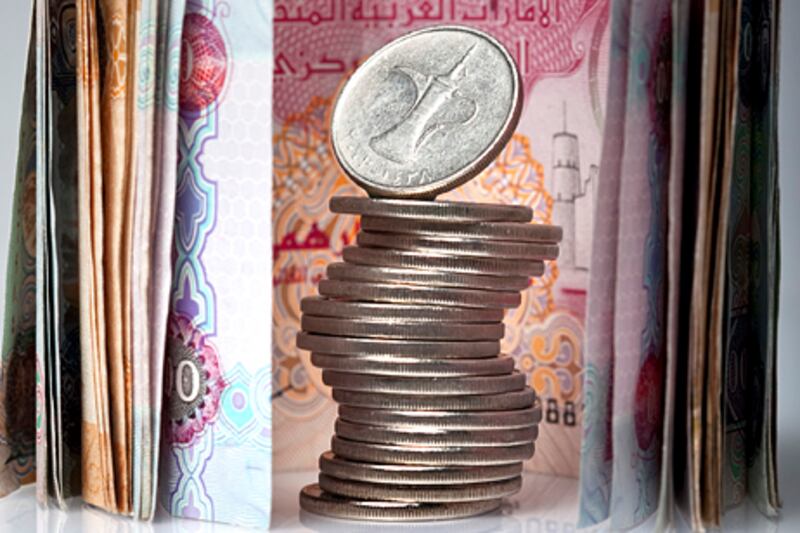More than half of residents in the UAE expect their financial situation to improve over the next year, despite a global economy hanging in the balance.
Consumer expectations for the year to come are high across the Middle East and North Africa (Mena), according to a survey by Bayt.com, an online jobs portal, and YouGov, a research and consulting organisation.
In the Emirates, 52 per cent of respondents believe they will have more money in their pockets this time next year as business conditions improve and more jobs become available.
“Retaining a positive outlook for the year to come will be pivotal to the region’s success,” said Suhail Masri, the vice president of sales at Bayt.
“Conditions may not be considered to be entirely favourable at the present time but there are plenty of signs that the months to come will prove beneficial for all.”
Employment prospects in the UAE, while still much weaker than when the global economy was booming, are currently better than in many other countries around the region.
“The UAE is leading the way in the region with 34 per cent increase in online advertised job vacancies” this quarter as against same period last year, according to Mark Burns, a principal consultant at the Gulf Recruitment Group in Dubai.
There was a 30 per cent year on year increase in online advertised vacancies for senior professionals in finance, sales and marketing, human resources, secretarial and construction sectors with even greater candidate demand expected for the rest of the year, Mr Burns said.
Anilesh Kumar, the owner of the IT firm Levtech Consulting, a small to medium-sized enterprise (SME), said he had been hiring staff. The company has increased its workforce by adding IT project managers, consultants and sales managers at its Dubai office. It now employs 25 people. “Overall job prospects have improved marginally,” Mr Kumar said.
SMEs are growing faster than bigger companies because they have smaller headcounts to begin with, he said.
The survey showed there were still a large number of jobseekers struggling to find work in the UAE, however, with almost half of respondents claiming there were “very few jobs available” in the current market while 65 per cent said salaries had not kept pace with the cost of living.
Data for the quarterly Bayt/YouGov survey was collected online from July 16 to August 1 from 7,421 respondents more than 18 years old, covering GCC Arab, North African, Levant, western expatriate and Asian nationalities in the Mena region.
The global economic crisis is expected to continue to weigh on the UAE’s fortunes, however, despite the green shoots in the survey.
The health of the global economy is unclear as a slowdown in the Chinese economy is offset by a modest summer rally in shares across the globe, even as policymakers in Europe have been ambiguous on the prospects for the euro zone.
This month, the HSBC Purchasing Managers’ Index showed China’s manufacturing sector had shrunk for a ninth straight month last month.
Meanwhile, export orders in the UAE’s private sector dropped at their steepest rate in more than two years in the same month.
“The bottom line is that growth is still weak,” said Rachel Ziemba, the director of eastern Europe, Middle East and Africa and global macro-economics at Roubini Global Economics in London.
“Our view is that things are not going to get a lot better. I would be cautiously hopeful because it’s been a tumultuous two, really three, years in the Middle East.
She added slow growth in China and uncertainty in the euro zone would continue to damage trade in the Middle East and UAE as well as the value of residents’ assets abroad.
“A big part of the positive improvements have come down to strong oil prices,” said Ms Ziemba.
Echoing her, the Bayt/YouGov survey showed confidence had not been high in the past year across the Mena region, despite the seemingly positive sentiment about the near future.
Only 28 per cent of those surveyed claimed their financial situation was now better than last year compared with 65 per cent who stated it either remained the same or had declined.
twitter: Follow and share our breaking business news. Follow us
iPad users can read the digital edition of business section as it was printed via our e-reader app. Click here





